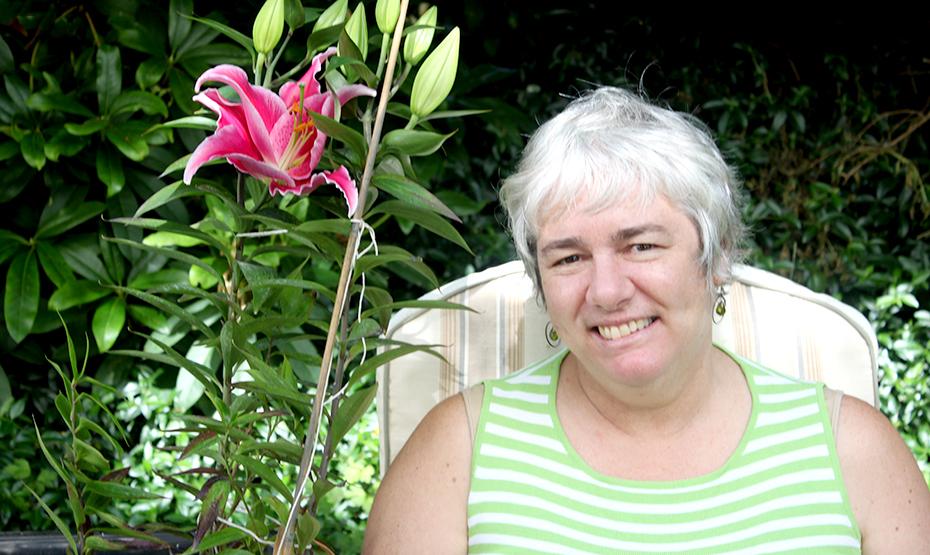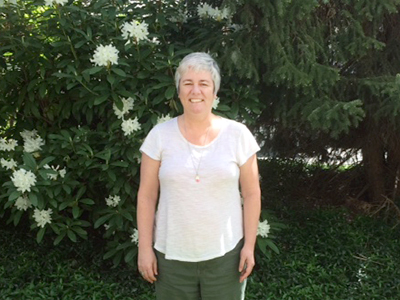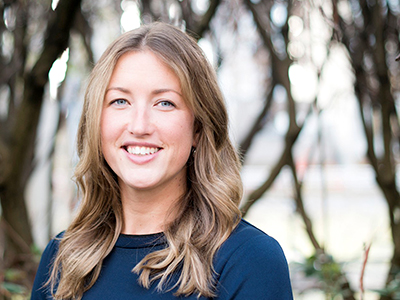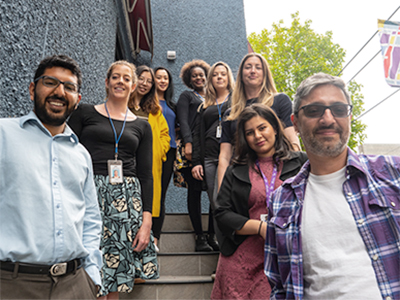
"I say yes to participating in research because it helps me remember how good it is to be healthy now.”
– Sage Rinaldo, Vancouver
Fifty-three year old Vancouver resident Sage Rinaldo lived with hepatitis C for many years before working up the courage to seek treatment. Rinaldo credits a community health nurse in the Downtown Eastside who gained her trust and helped her successfully treat her hepatitis C with a new anti-viral treatment. Now, Rinaldo is giving back by taking part in a long-term follow up study focussed on reinfection prevention. The Per-SVR study is aiming to better understand if, how and when hepatitis C reinfection may occur.
Happily settled in the Renfrew-Collingwood neighbourhood and actively volunteering in her community, Rinaldo says taking part in the Per-SVR study reminds her how wonderful it is to be healthy, and helps her see how far she’s come.
“It’s almost like I can’t quite believe I don’t have hep C anymore. I think coming to do the study and answering the questions reminds me about my whole journey to where I am today.”
As a Per-SVR study participant Rinaldo will make 10 clinic visits over a five-year period, providing blood and urine samples and answering questions about her lifestyle and support systems. “It reminds me what it’s like to have hep C and what it’s like to be cured of hep C. There’s a huge difference.”

Before receiving treatment, Rinaldo was one of the estimated 72,000 British Columbians who live with hepatitis C. Left untreated, the virus can lead to severe liver complications, such as cirrhosis and liver cancer. While Rinaldo’s only symptom was fatigue, she worried constantly about her infection. “It was always hanging over my head. I was trying lots of supplements and herbs because I was scared of the old treatment. I have frail mental health and the old treatment had a lot of scary side effects. I didn’t want to risk harming myself.”
Unlike older hepatitis C treatments, the new direct-acting anti-viral medication (DAA) is very well tolerated and cures more than 95 per cent of hepatitis C cases. Rinaldo’s infection was cleared within six weeks. While DAA cures current cases of hepatitis C, it’s not a vaccine so it doesn’t prevent future infections. That is why research scientist Dr. Kate Salters says the follow-up study is important.
“We have two primary goals in the Per-SVR study. One is to retain people in ongoing clinical follow-up so we can quickly detect if there is a reinfection and link them to care," says Salters. "The second is to better understand harm-reduction behaviours, and the social and medical support people need in order to avoid reinfection. We want to show that free DAAs make sense from a public health perspective.”

Salters explains there are two main groups of hepatitis C patients in Canada. The first are individuals born between 1945 and 1965 (“baby boomers”) with prevalent infections likely contracted through blood transfusions or other medical interventions years ago.
The second are individuals with new or “incident” infections, with a large majority of infections acquired from injecting practices. Salters says this complex population often experiences multiple health challenges and marginalization. “It’s important to look at what harm-reduction supports work to prevent reinfection. We hope to identify obstacles to the prevention of reinfection, to find out where and why reinfection occurs and, when reinfection does occur, to look at what prevention opportunities were missed.”
“If we can effectively combine treatment with good harm-reduction we can make major progress in the spread of this disease. BC will become an international leader in combatting hepatitis C.”
Salters says many people are unaware they have hepatitis C, so she urges anyone who might have the infection to get screened. That includes all baby boomers born in North America, people who have emigrated from countries where the disease is prevalent and people who may have had medical interventions in childhood.
Rinaldo encourages people who’ve had successful DAA treatment to take part in the Per-SVR study. “It’s not a big commitment of time, and the staff are very flexible. You can schedule visits around other errands and activities.”

The study has already recruited more than 250 participants, with a goal of 750 participants in total as it expands across the province. For more information, contact the Per-SVR team at 604-416-1566 or persvr@cfenet.ubc.ca.
THIS IS ONE PATIENT’S STORY OF PARTICIPATING IN A CLINICAL TRIAL. YOUR EXPERIENCE MAY DIFFER. LEARN MORE ABOUT CLINICAL TRIALS BEFORE PARTICIPATING.


